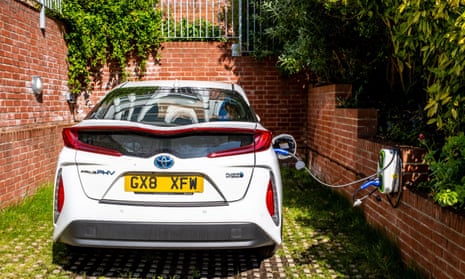UK’s Weakened EV Sales Rules Could Lead to Higher Carbon Emissions, Warns Climate Adviser
The UK government’s recent flexibility on the zero-emission vehicle (ZEV) mandate could result in fewer electric cars on British roads and higher carbon emissions, according to the Climate Change Committee (CCC), the government’s official climate adviser.

The CCC stated that the flexibilities announced by Keir Starmer could lead to more plug-in hybrids being sold “at the expense of some EV sales, which would lead to a further reduction in emissions savings.” The UK introduced the ZEV mandate to force carmakers to sell more electric cars annually or face steep fines. However, the Labour government introduced “flexibilities” into the rules after heavy lobbying from the car industry, which argued they were economically unsustainable.
Experts previously highlighted apparent flaws in the government’s analysis, believing the flexibilities would result in much higher sales of plug-in hybrid electric vehicles (PHEVs), which emit far more carbon than electric cars. T&E, a transport and environmental campaign group, estimated that the changes could mean up to 500,000 extra PHEVs on UK roads by 2030.
Heidi Alexander, the transport minister, claimed the ZEV mandate changes would have a “negligible change to the carbon emissions.” However, the CCC pointed out that Department for Transport analysis assumed carmakers would not use greater flexibilities to sell more PHEVs – an assumption experts consider incorrect.
Ben Nelmes, CEO of the thinktank New AutoMotive, criticized the government’s decision, stating, “The CCC’s verdict is clear: ministerial meddling with electric car rules risks creating damaging uncertainty.” Tim Dexter from T&E said, “The CCC’s letter reveals a critical weakness in the government’s revised zero emissions vehicle mandate, jeopardising its climate goals and increasing costs for drivers.”
The CCC described the government changes as “pragmatic” and “minor” relative to the trend of increasing EV sales. However, they also criticized the government for failing to ban petrol and diesel van sales by 2030, instead opting for 2035.
A Department for Transport spokesperson claimed the changes “will have a minimal impact on emissions” and would protect jobs. The UK’s shift in car sales rules has sparked concerns about the potential increase in carbon emissions and the impact on the country’s climate goals.



